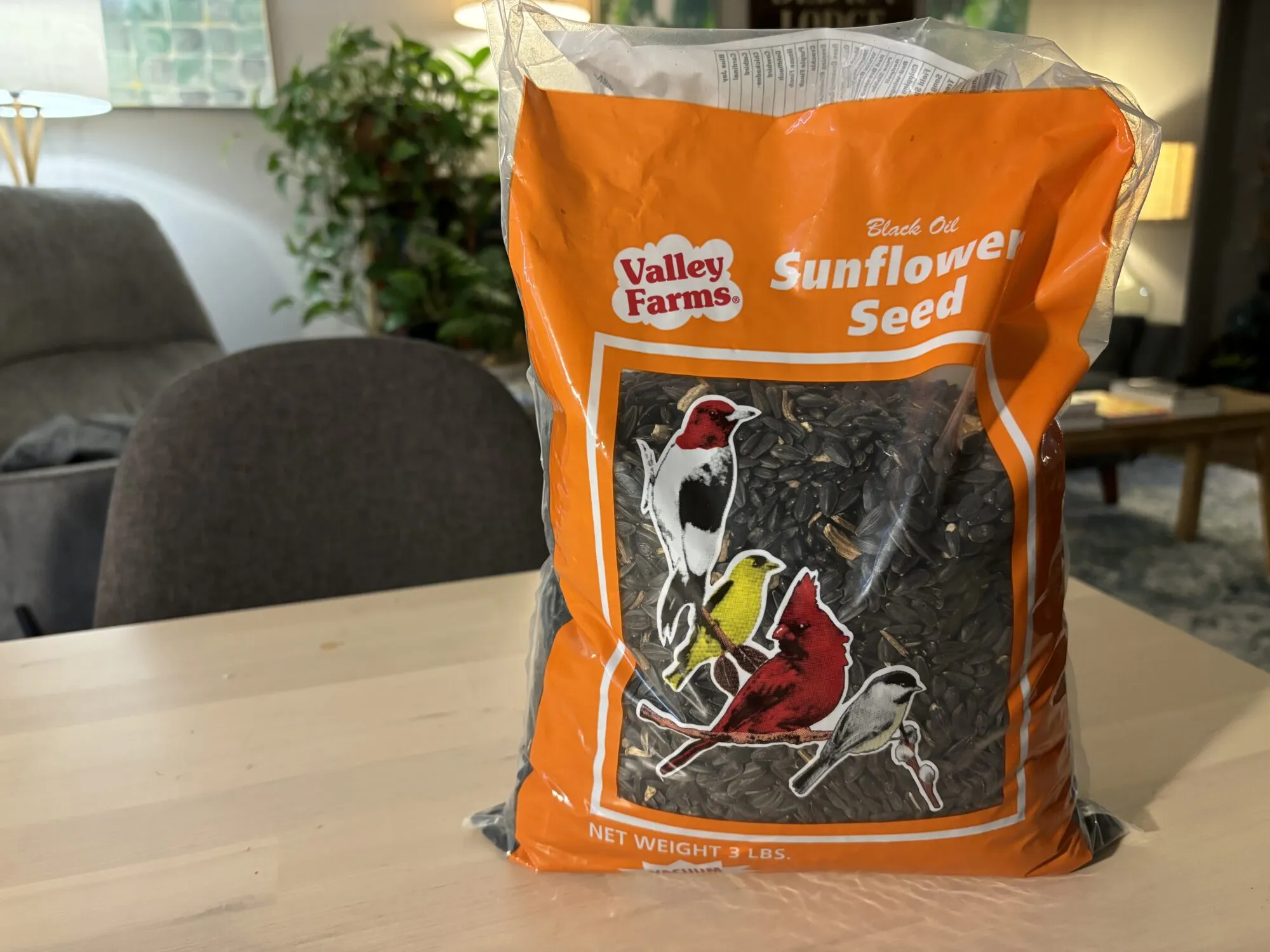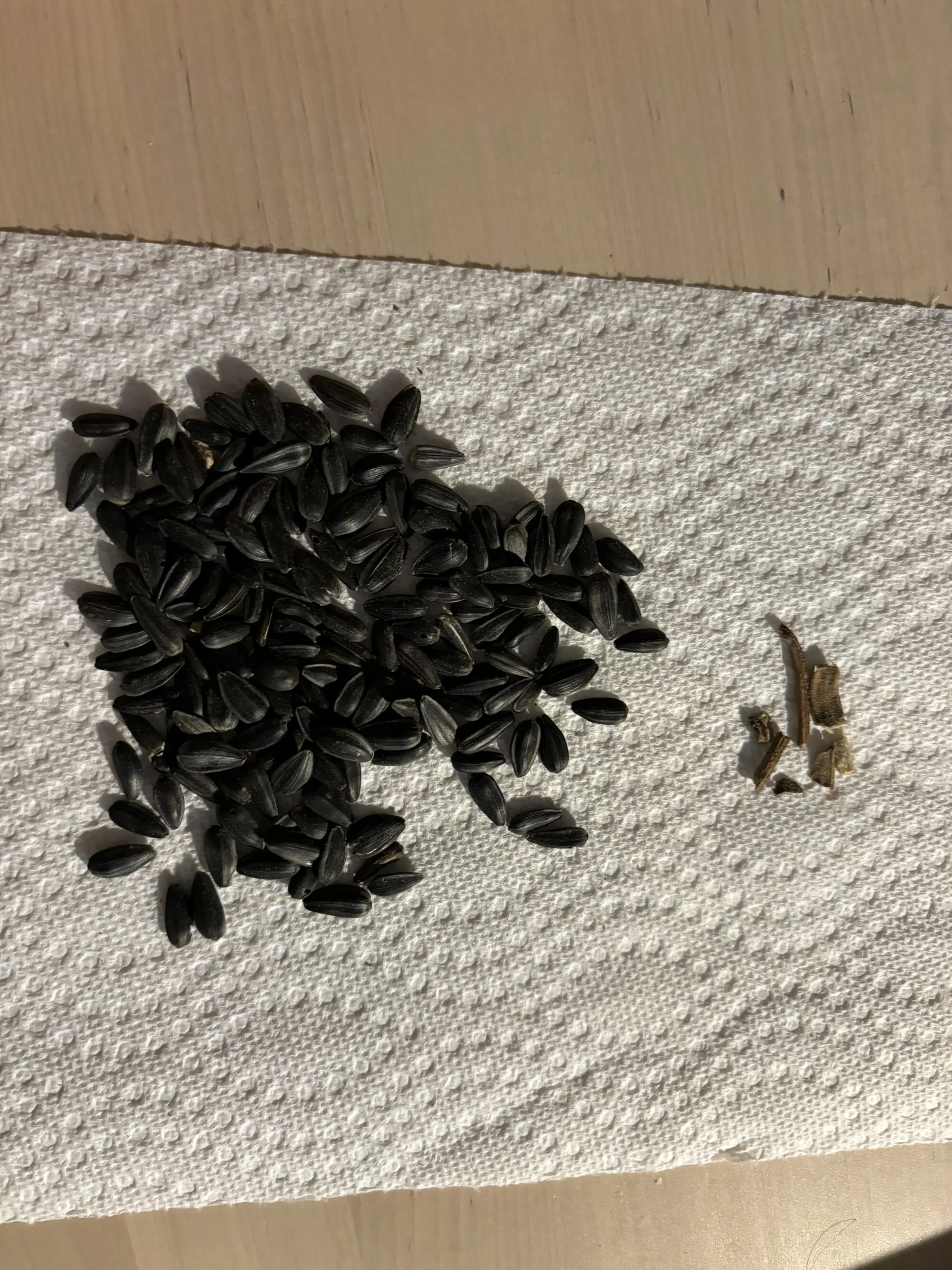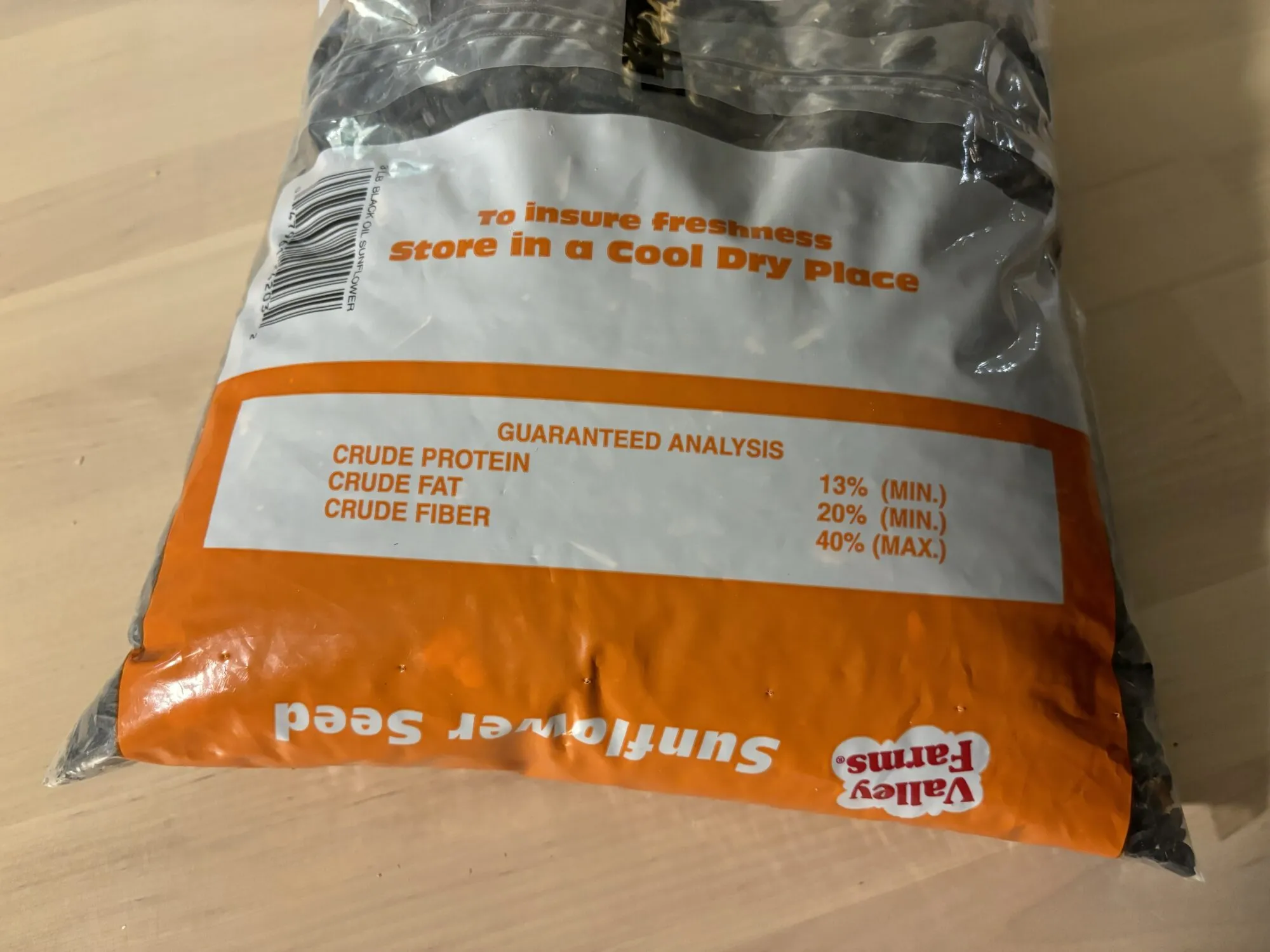If you’re looking to attract Northern Cardinals and other backyard birds to your feeders without breaking the bank, Valley Farms Black Oil Sunflower Seed is a standout option. I’ve been experimenting with various bird seeds for years to keep my local cardinals visiting regularly, and this three-pound bag proved to be a reliable, budget-friendly pick. Sourced from Amazon, it delivers high appeal at a low cost, making it ideal for bird enthusiasts on a budget.
This seed stands out for its versatility and nutritional value. Black oil sunflower seeds are a staple in bird feeding because they offer essential fats, proteins, and oils that birds crave, especially during winter months when energy demands peak. For more insights into bird diets that support various species, check out the best diet for pigeons.
 A bag of Valley Farms Black Oil Sunflower seed from Amazon
A bag of Valley Farms Black Oil Sunflower seed from Amazon
Why Black Oil Sunflower Seed Excels for Bird Feeders
Sunflower seeds, particularly black oil varieties, top the list for many birders due to their broad appeal. They draw in a wide range of species while remaining economical—perfect for filling multiple feeders. Experts from the Cornell Lab of Ornithology highlight sunflower seeds as nutrient-dense favorites that support bird health, echoing recommendations from the Audubon Society for backyard feeding success.
When I purchased this bag, it was on sale for $8.99, though prices have fluctuated to around $12.50 since. Compared to premium blends like Audubon Park Cardinal Blend, it holds its own in quality while staying cheaper per pound. I’ve used it successfully in tube and hopper feeders, where it performs consistently without waste.
Customer feedback reinforces its popularity, with a solid 4.7 out of 5 stars on Amazon. Users praise its freshness and the oily coating that keeps birds coming back. While a small amount of filler like sticks was present—far less than in many bargain seeds—it was negligible and free of low-value grains like milo or oats.
 Black oil sunflower seed sample showing minimal filler sticks on a paper towel
Black oil sunflower seed sample showing minimal filler sticks on a paper towel
Birds Attracted to Valley Farms Black Oil Sunflower Seed
One of the best aspects of this seed is its ability to lure diverse birds beyond just cardinals. In my yard, it consistently attracted Northern Cardinals, Black-capped Chickadees, Dark-eyed Juncos, and House Finches. During breeding seasons, I’ve spotted Rose-breasted Grosbeaks joining the mix, adding excitement to daily observations.
Here’s a comprehensive list of species commonly drawn to black oil sunflower seed, based on my experience and data from Cornell’s Project FeederWatch:
- American Crows
- American Goldfinches
- Blue Jays
- Chickadees
- Dark-eyed Juncos
- Downy Woodpeckers
- Hairy Woodpeckers
- House Finches
- Grosbeaks
- Mourning Doves
- Northern Cardinals
- Northern Flickers
- Northern Mockingbirds
- Nuthatches
- Pine Siskins
- Red-bellied Woodpeckers
- Red-winged Blackbirds
- Sparrows (most species)
- Spotted Towhees
- Steller’s Jays
- Titmice
- Woodpeckers
- Wrens
Note that exact visitors depend on your region and habitat. This seed shines in various feeder types, from platforms to nyjer specialists adapted for larger seeds.
For cockatiel owners seeking similar high-quality feeds, explore options like wild harvest cockatiel.
Nutritional Breakdown and Storage Tips
Black oil sunflower seeds pack a punch nutritionally, providing high levels of fat for energy, protein for growth, and fiber for digestion—crucial for birds facing harsh weather. The bag’s label confirms these benefits, ensuring it’s a wholesome choice year-round.
 Back of Valley Farms Black Oil Sunflower Seed bag displaying protein, fat, and fiber content
Back of Valley Farms Black Oil Sunflower Seed bag displaying protein, fat, and fiber content
To maximize freshness, store in a cool, dry place and use within a few weeks of opening. This preserves the natural oils that make it irresistible to birds.
Final Thoughts on Valley Farms Black Oil Sunflower Seed
Valley Farms Black Oil Sunflower Seed offers exceptional value, drawing cardinals and dozens of other species with minimal filler and strong nutrition. Whether you’re a seasoned birder or just starting, it’s a smart addition to your feeding routine. Consult local birding resources or experts for tailored advice, and experiment to see what thrives in your yard.
Ready to stock up? Share your experiences with this seed or other favorites in the comments below.
References
- Cornell Lab of Ornithology: Types of Bird Seed Guide
- Audubon Society: Tips for Feeding Backyard Birds
- Cornell Project FeederWatch: Common Feeder Birds
Last updated: November 2025
